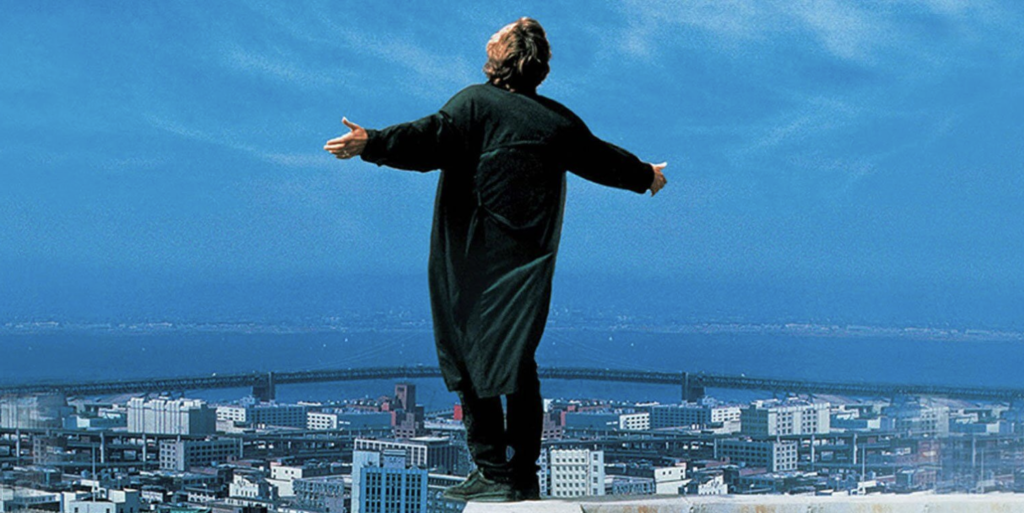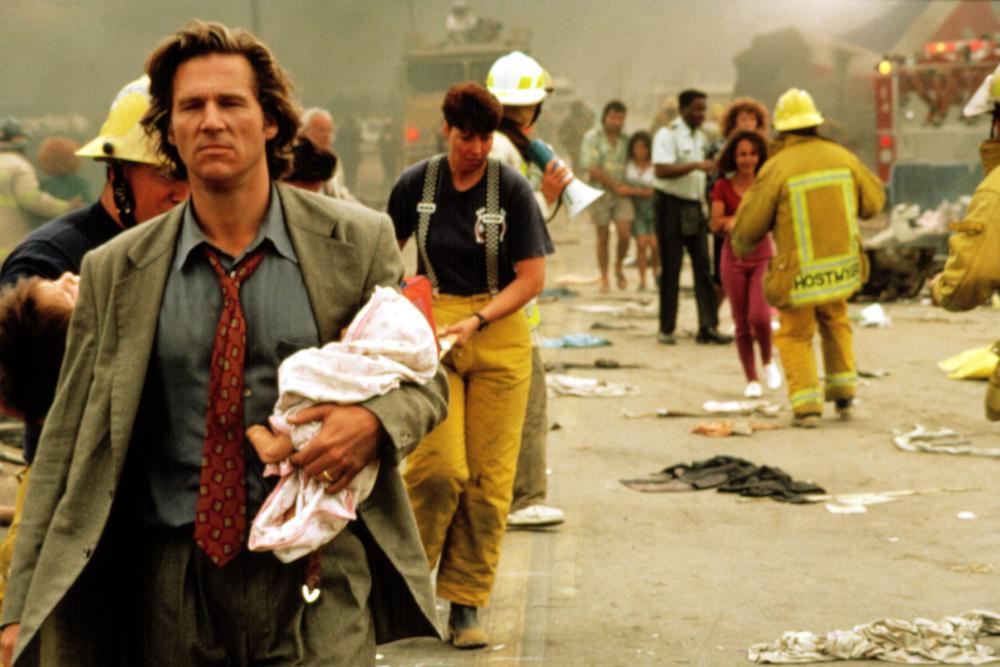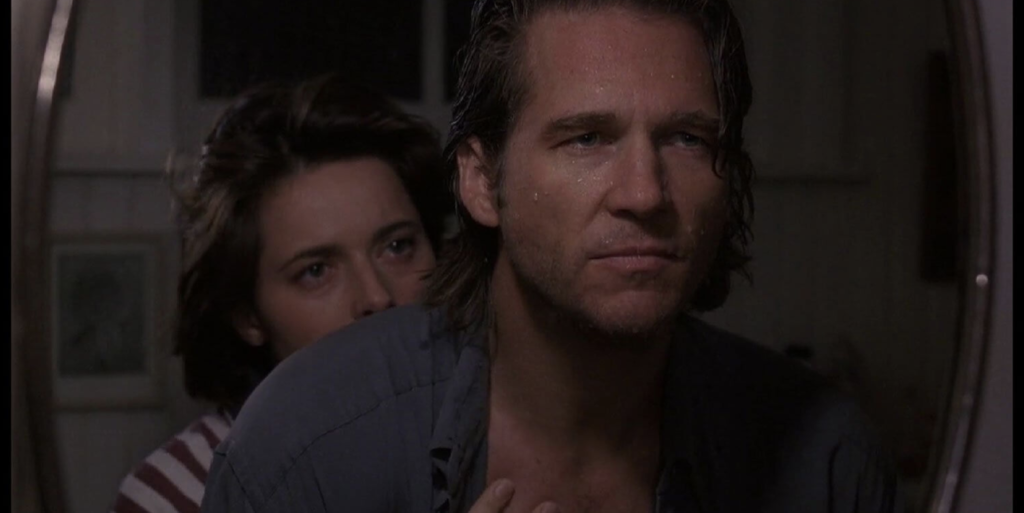| Bob Aulert |

Fearless plays at the Trylon from Friday, September 8th, through Sunday, September 10th. Visit trylon.org for tickets and more information.
Fearless defies categorizing. It delves into the metaphysical while simultaneously following a plot that could neatly fit into a made-for-TV movie. Its protagonist lives in a netherworld that is neither Life nor Death, misunderstood by almost everyone around him. It’s a challenge that Australian-born Director Peter Weir (Picnic at Hanging Rock, Dead Poets Society) balances artfully and the cast portrays skillfully.
San Francisco architect Max Klein (Jeff Bridges) is one of the few survivors of a commercial airliner crash outside Bakersfield, CA. After dazedly wandering through a cornfield and reuniting an infant with its mother, he catches a cab to a motel and attempts to just… disappear—so he can process what’s happened. He has survived, but he conducts himself as someone who’s died; or at least, someone who can no longer be killed. He had a lifelong allergy to strawberries, but he now gulps them down with no ill effect. He also becomes a truth-teller to the point of being hurtful to those he loves.

The airline has provided a psychiatrist (John Turturro) to help him deal with his post-crash life, but Max brushes him aside. At home, Max’s wife (Isabella Rosellini) tries to help him with what, for her, is a huge trauma. But for Max, it’s just another day. The people in Max’s life view him as increasingly off-kilter while he appears to be more and more at peace in the world he’s created for himself.
The only person that Max can relate to is fellow crash survivor Carla Rodrigo (Rosie Perez); she’s lost her young son and is convinced that her life is over. Max and Carla develop a bond that is impossible to describe or understand by anyone who was not in the crash. They become so close that it appears that they might have an affair, but screenwriter Rafael Yglesias (adapting his novel) wisely makes Max and Carla’s relationship philosophical and introspective, but not romantic.

The acting is uniformly excellent. Bridges and Perez forgo histrionics or gratuitous emotional displays. There are no grand speeches or soliloquies, just the honest and sometimes dumbfounded musings of two ordinary human beings.
Fearless stands out from Weir’s other more ethereal films because it is not a genre fantasy or a stylized satire; it doesn’t ask us to give credence to magic, as in the eerie The Last Wave. Max’s psychic transformation is easily pegged as a consequence of his extremely traumatic experience. But when will his exalted state of being cease, and what will happen when he eventually comes down? That’s what holds our attention, and the eventual denouement is both simple and shattering.

Director Weir could have made a film centered around many things—the crash, trauma, suffering, or family strife—but pares it down to two flawed individuals trying to figure out their place in the universe. It’s an economical choice that allows Max’s and Carla’s stories to shine like a beacon.
Edited by Olga Tchepikova-Treon
